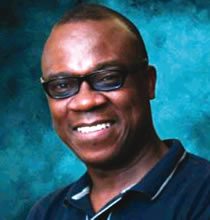Psychiatric consultation of the private life
There are raging controversies concerning what actually constitutes the public and the private life of an individual.
Definitions vary with respect to culture, context and circumstances. Sigmund Freud attempted a definition of the private life of an individual in his theory of psychoanalysis, where he described the mind we employ in our daily interactions, which is immediately demonstrative and parades sophisticated psychic functions of varied shades of emotions, memory and thoughts as the conscious mind.
In his description of the topography of the mind, this part of the human mind is likened to the tip of the iceberg, with large reservoir of what modulates the character and behaviour of the visible conscious mind submerged within a large ocean, hidden in the vast expanse of consciousness below the surface as the unconscious mind.
This compartment provides accommodation for all of our childhood memories, both good and bad. It has the recordings of experiences that may, invariably, serve for the optimal functioning or otherwise of the conscious mind.
Dreams, with all of its varied connotations, are products of our real life activities banished into the unconscious mind, reprocessed to prevent feelings of anxiety but replayed back when the conscious mind is less guarded.
This compartment acts like the black box of the aircraft, where recordings of communications emanating from the flight crew and the control tower shortly before a crash occurs are stored and could be retrieved.
Anytime there is a possibility of a malfunctioning or outright crash of the conscious mind, there is a need to engage and analyse the recordings of our psychic black box. The measurement and determination of the quality of life of an individual, through validated questions, are determined largely by the degree of resolution that has taken place between the unconscious and the conscious mind.
The ego of man mounts reality-testing within the context of the social environment and thereby constructs a super-ego as the policeman to enforce compliance to those ideals espoused by the society to keep the ‘Id’ in check.
In his theory, the overwhelming experience of anxiety capable of disrupting mental functioning at social and occupational levels could be traced to this dissonance in the functioning of the two minds. This may not be unconnected with the fact that cumulative acts of violation of the conscience may be of grave consequences to the mental wellbeing of individuals, just as violations of the sense of self such as rape, varied forms of physical and emotional abuse, devastating incidences like wars, hurricanes, floods and many others may have grave impact on the mental well-being of certain individuals.
Very dramatic events such as wars or major accidents coming back later as flashbacks in post traumatic stress disorder among war veterans and survivors of major accidents are typical.
The video-recording facility of the unconscious mind is extraordinary and has a strong modulating effect on the functioning of the conscious mind.
As a consequence, a lot of activities of the conscious mind at work, in marriage, in parenting, in corporate governance, in business transactions and politics reflect the activity of this storehouse hidden below the surface of the tip of the iceberg.
When there are issues emanating as deviations from normal adjustments and wholesome behavioural complements in these areas, the private life of such individuals may need to be explored to give clues to the underlying basis of such anomaly. Unfortunately, this compartment is not easily accessed, as strong walls of immature defence mechanisms may have been mounted. In Africa, religiosity, as opposed to sound spirituality, often plays a destructive role in this stance by robbing such individuals of the opportunity of free association to unlock the unconscious in order to identify certain issues and milestones in such individuals that may require intervention in a therapeutic professional relationship.
Africans have a lorry load of superstitious, myths and taboos to shut down this powerful psychological storehouse, which may be responsible for the mental malfunctioning. Clinical clerkship is an all-time index of sound medical training. Computers cannot replace this wonderful art of interaction between the doctor and the patient in the process of eliciting the historical dimensions of a clinical problem.
Most times, we read of great achievers in the academics, entertainment industry, business and even politics; but suddenly, we read that they are cut down by complications of drug addiction or other mental health issues that could have been fixed earlier on.
There is a need for the history of private life of persons to be explored, especially when there are indications of mental health issues in a so-called ‘normal person.’ When this is done, it will augment the medications prescribed and set such individuals on the pathway of recovery.
PUNCH.








